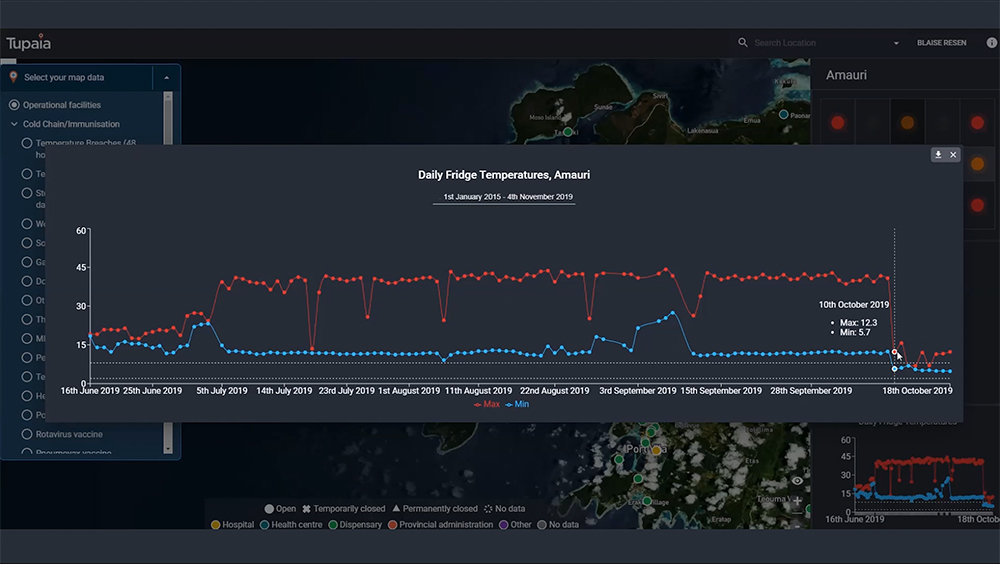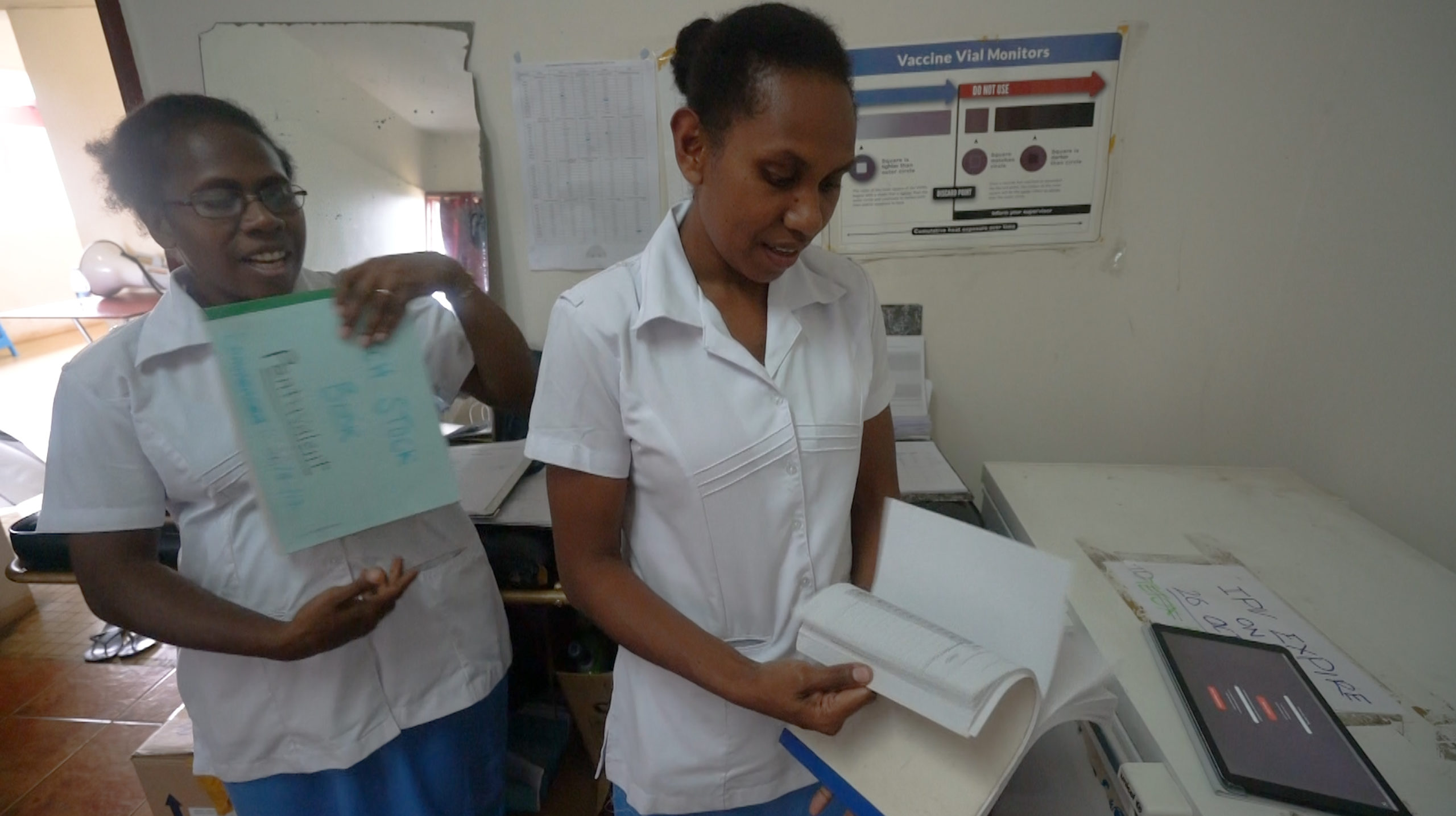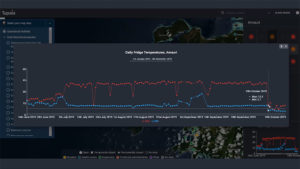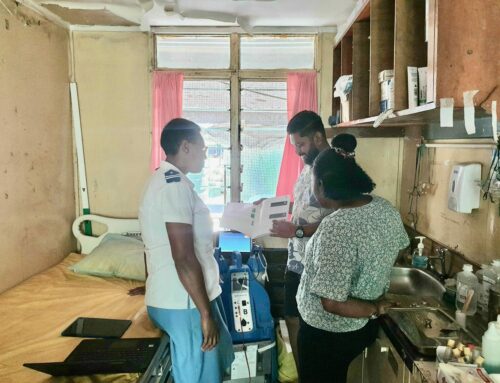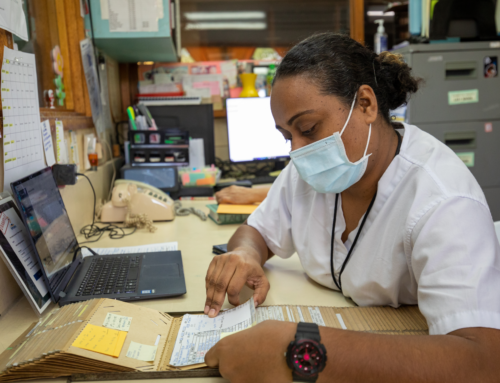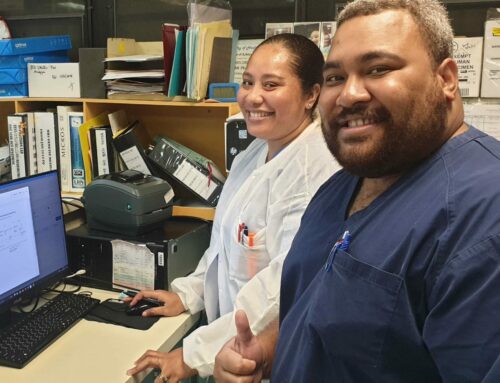Vaccines can save lives and prevent the spread of life-threatening diseases, but only if they are stored and distributed effectively.
Sounds simple, right? In many of the small island nations where we work access to a reliable power source, a working fridge and accurate fridge temperature monitoring, quality assurance can be a big problem.
This is why we developed the Immunisation Dashboard in the Tupaia app and launched it in Vanuatu this year.
How it works?
Our immunisation dashboard automates daily fridge temperature reports using Bluetooth sensor technology and mSupply mobile. It’s designed to help national and regional health workers and managers access real-time information about what vaccine supplies are in-stock, how they are stored and if they are safe for use, all in one place.
Reports are available offline and the sensor records the highest and lowest temperature of the vaccine fridge each day, and the ideal temperature is from 2 and 8 degrees celsius. Anything above or below is classed as a breach.
The challenge
The journey of a vaccine from manufacture to a health facility on a small remote island, then to the patient, is a long one that takes time and money. This is why it’s so important they are stored effectively to avoid the need to replace vaccination supplies and equipment, all together.
Previously, accessing this information instantly and in one place has not been possible. It was administered manually using paper-based reports and different health information systems that need to be written, dispatched and interpreted.
In June 2019, the nurse working at Amauri Dispensary on Lelepa island, Risco, detected that the fridge temperatures were too high alerting staff to a fridge malfunction.
This temperature information was sent to regional and national health centres, where managers from the Expanded Programme on Immunisation and Ministry of Health could review the data instantly, and make a plan to resolve issue.
Caption: this is what a consistent temperature breach looks like. As you can see, the fridge at Amauri Clinic was repaired on 10 October 2019.
The solution
We installed Bluetooth fridge sensors at 8 health facilities in Vanuatu’s Shefa Province to automating fridge temperature tracking in June 2019.
Health workers at each clinic learned how to sync fridge data from the Bluetooth sensor to mSupply mobile to send data and interpret data within the Tupaia app. Now they can instantly see is the fridge working? Is the temperature too low or too high? What is the problem and how long has there been one?
With Tupaia, the fridge temperatures and supplies available at each clinic can be viewed anywhere, anytime, to check that vaccines are kept at the right temperature and are safe and effective for the people receiving them.
Without this oversight vaccination equipment can break and vaccines spoil and they are not easy to replace. Besides keeping vaccines cool and safe, the Immunisation Dashboard allow health workers, suppliers and decision makers to visualise immunisation data in real-time to detect problem areas quickly and proactively solve the problem.
|
Before |
After |
